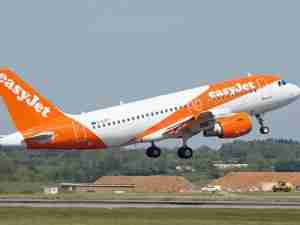The abrupt departure leaves United, a unit of UAL Corp , bereft of a key bargaining chip in its separate talks with Continental -- a rival bidder. That works to Continental's advantage.
"The sense of urgency has been lifted from Continental's perspective," Stifel Nicolaus analyst Hunter Keay said. "They clearly have more leverage than they did (earlier)."
Continental and United restarted merger talks last week, just a week after news broke of merger talks between United and US Airways. Continental executives declined to comment on US Air's departure, which the company announced during Continental's quarterly earnings call.
From the start, many analysts favored a merger between Continental and United. The combined company would form the world's largest airline, edging out current No. 1 Delta Air Lines.
Continental has said it is in favor of flying solo, even as other companies have clamored for consolidation. Mergers can help airlines streamline costs, cut competition, raise fares and ultimately post profits, analysts have said.
On Thursday, Continental posted a wider-than-expected first-quarter loss, hurt by heavy snowstorms and higher fuel costs. Chief Executive Jeff Smisek has said he will forgo his 2010 salary if the company does not post an annual profit.
"For this sector, it's never going to be good as overpopulated with supply as it is," said Gimme Credit analyst Vicki Bryan.
No Dance Card for US Air
In 2008, Continental was in merger talks with United, but ultimately spurned United's advances. Later, Continental joined Star Alliance, a marketing network spearheaded by United.
Smisek, who was president and a board member in 2008, voted against the merger, but at a March conference, Smisek seemed to relax his stance on mergers when he said Continental would "bulk up defensively" if needed.
JP Morgan analyst Jamie Baker wrote in a note that a deal involving United now had a 40 percent chance of transpiring this year. When US Airways was involved in talks, Baker pinned the probability of a 2010 merger at 85 percent.
A Continental-United tie-up raises key questions about the fate of US Airways and Delta.
"US Airways, unfortunately, never seems to appear on the top of anybody's dance card," Bryan said. "This definitely puts their competitive future in question."
Keay said US Airways could find a match in AMR Corp's American Airlines.
Delta, which acquired Northwest in 2008 to take the industry lead, said this week that it was not concerned about speculation on further industry consolidation. Analysts said the emergence of a bigger rival would not hinder Delta's ability to compete.
In fact, airline consultant Vaughn Cordle said Delta would benefit because the new United-Continental would eliminate another individual player in the still money-losing industry.
"This does not hurt Delta," Cordle said. "It will change the industry structure and that allows greater pricing power for the Delta-SkyTeam group."
'A Tough Sell'
Still, a merger between United and Continental faces many hurdles and is by no means a done deal.
Continental and United are considering a stock-for-stock merger with no premium, a source familiar with the matter said.
The deal would leave Smisek at the helm of the combined company, while UAL CEO Glenn Tilton would become chairman.
The structure of this deal suggests both carriers are looking to cut costs and create a viable company, Bryan said.
But some investors might find it difficult to stomach such a deal given the bullish sentiment on the airlines in wake of the merger talk and improving revenue trends.
The drop in capacity has also allowed airlines to lift fares and cut back on costs.
According to Oliver Wyman data, domestic capacity fell 3.7 percent in 2008 and about 7 percent in 2009. The resulting capacity cuts are e










